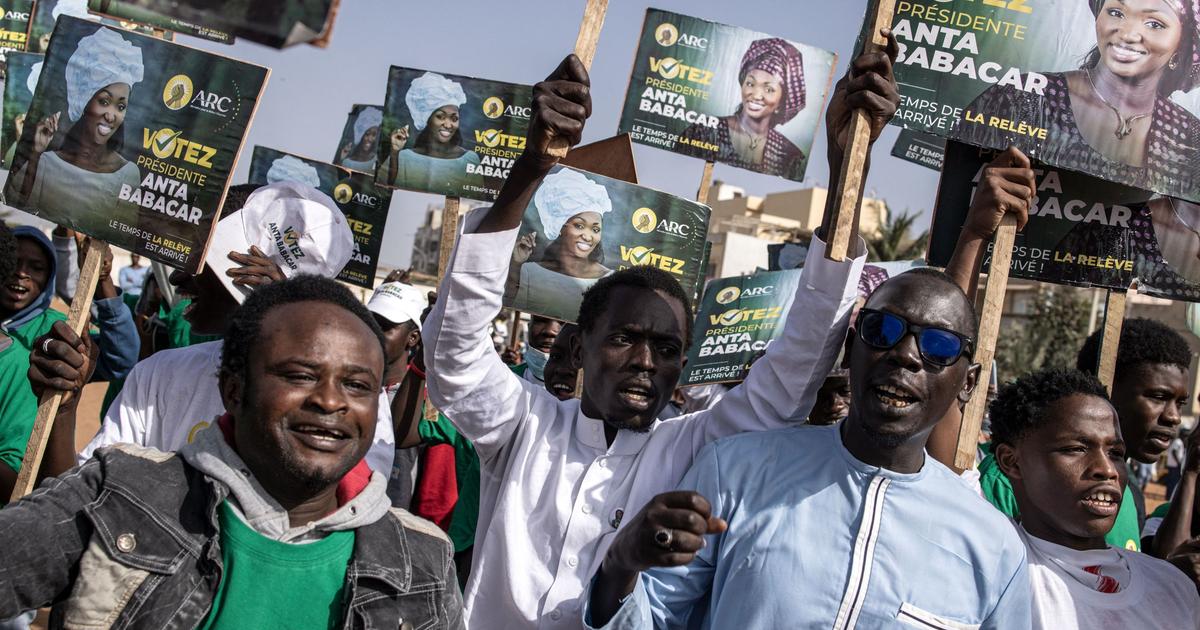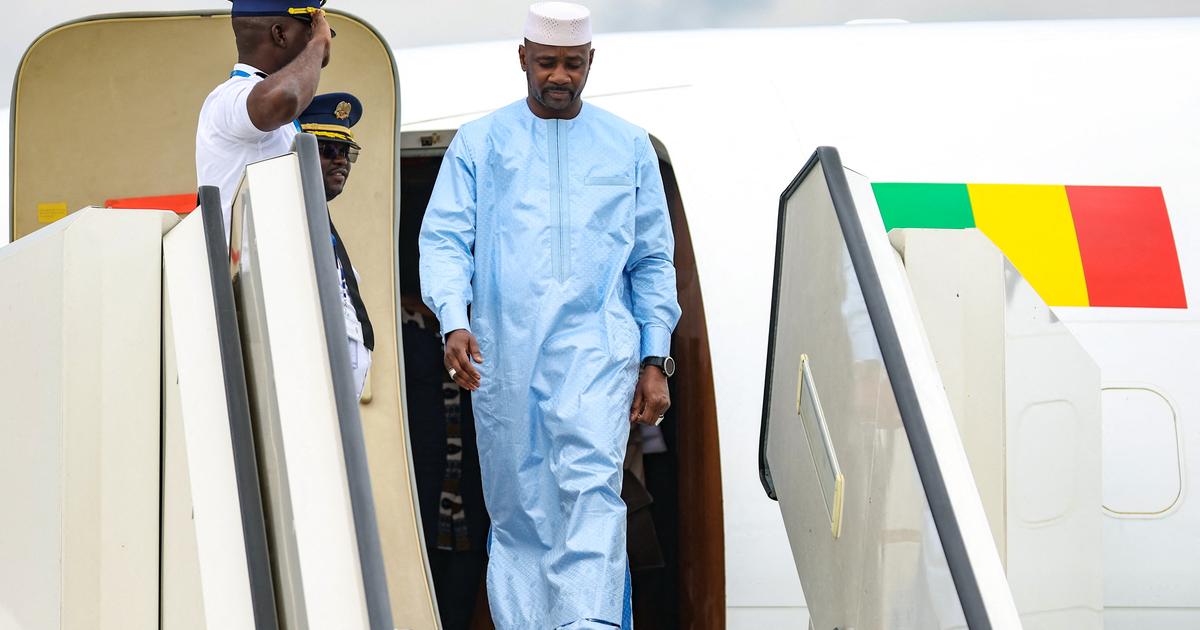Icon: enlarge
"The world could have learned from Africa," said former Prime Minister Aminata Touré in an interview with SPIEGEL
Photo:
Horacio Villalobos / Corbis / Getty Images
SPIEGEL:
Ms. Touré, Joe Biden will be the next President of the United States.
How did you take this news?
Touré:
I really hope that Joe Biden will get the US back on track.
That he is returning to a policy based on evidence and science, not sensitivities.
That he restores America's reputation and that we return to dialogue and international cooperation.
The United States is a great nation, but it derailed completely under Donald Trump.
SPIEGEL
: What do you mean by that?
Touré:
Trump has never made a secret of how much he despises multilateralism.
In the midst of a global health crisis, he cut financial support for organizations in the UN, for example for the population fund.
This has direct consequences, for example for the health of women in Africa.
It is now harder for them to get contraception or medical care.
In addition, Trump has cut financial support for the World Health Organization (WHO) instead of investing more money in research or the joint development of a vaccine.
SPIEGEL: It's
not just the US that has turned its back on international cooperation.
All over the world, borders were closed in the corona crisis, and the search for a vaccine has turned into a kind of competition.
Touré:
It is so absurd.
The virus does not stick to national borders.
Interestingly enough, Western states are particularly vulnerable in this crisis.
Not the African continent.
At the beginning of the crisis, bets were made that Covid-19 would result in millions of deaths in Africa.
It never turned out like that.
The world could have learned from Africa.
“At the beginning of the crisis, bets were made that Covid-19 would result in millions of deaths in Africa.
It never turned out like that. "
SPIEGEL:
What are African countries doing better?
Touré:
Governments have experience with epidemics, for example Ebola, and how to get them under control.
Many correct and forward-looking decisions have been made.
In Senegal, for example, the borders were closed early, earlier than in many European countries.
Meetings were banned and public transport was shut down.
Mosques were closed.
That was tough for a population that is 97 percent Muslim.
SPIEGEL:
On the other hand, poverty is growing in many African countries, and day laborers and migrant workers have lost their livelihoods.
People in rural areas rarely have access to Covid tests or treatment.
Experts doubt the official corona numbers.
Touré:
Sure, the corona crisis has increased the pressure on weak health systems.
And also on the economy: especially for young people in Africa it has become much more difficult to find a job.
We urgently need to address these issues.
Nevertheless, it is time for a new self-confidence in Africa.
The governments see that they are able to master their problems themselves, that they can act independently.
And that must also be the goal of international cooperation in the future: That states support each other in building up their own expertise.
SPIEGEL:
In organizations like the UN, states of the global south have little to say, it is said again and again.
Touré:
This criticism is based on a dangerous prejudice, namely that the global north is rich and powerful, the global south is poor and weak.
That is not right.
There are successful economies in Africa, let's take Nigeria or South Africa.
The African continent is emancipating itself, becoming more independent when it comes to research or medicine.
SPIEGEL:
Where, for example?
Touré:
The best sign is increased life expectancy, or take the decreased maternal and child mortality rates.
New trade relations arise: intra-African trade is growing.
The middle class is growing.
Unfortunately, the international media deal little with the changes in Africa, but remain caught in stereotypes of the poor, failed continent.
"The gap between Europe and Africa has narrowed."
SPIEGEL:
Do you have an explanation for this?
Touré:
The way Europe looks at Africa has nothing to do with reality.
The worldview comes from colonialism.
Europe still thinks that Africa is stuck in the 1950s of the past millennium.
The distance between the two continents has become smaller.
Europe must recognize that.
Africa is the youngest continent in the world - 200 million young people live here.
But at the same time I am concerned with how these young people get education and then also jobs.
A common currency in West Africa and a trading zone could be the solution.
SPIEGEL:
How is the climate crisis affecting the West Africa region where you live?
Touré:
Oh, climate change hits West Africa directly.
There are 800 kilometers of coast here.
Of course, we are concerned about rising sea levels.
Land is flooded.
People have to leave their homeland, they become displaced in their own countries.
The only thing is: these regions, most affected by the climate crisis, are not responsible for the pollution of the atmosphere.
The states in the north are responsible for this.
But they don't want to pay for the damage they cause.
The climate crisis is therefore another example of why I am so happy that Joe Biden has been elected US President.
He will rejoin the Paris Climate Agreement, which Trump canceled.
Icon: The mirror
This contribution is part of the Global Society project
What is the Global Society project? Up arrow Down arrow
Under the title Global Society, reporters from
Asia, Africa, Latin America and Europe
report on injustices in a globalized world, socio-political challenges and sustainable development.
The reports, analyzes, photo series, videos and podcasts appear in the international section of SPIEGEL.
The project is long-term and will be supported by the Bill & Melinda Gates Foundation (BMGF) for three years.
A detailed FAQ with questions and answers about the project can be found here.
What does the funding look like in concrete terms? Up arrow Down arrow
The Bill & Melinda Gates Foundation (BMGF) is supporting the project for three years with a total of around 2.3 million euros.
Is the journalistic content independent of the foundation? Up arrow Down arrow
Yes.
The editorial content is created without any influence from the Gates Foundation.
Do other media have similar projects? Up arrow Down arrow
Yes.
Major European media outlets such as "The Guardian" and "El País" have set up similar sections on their news pages with "Global Development" and "Planeta Futuro" with the support of the Gates Foundation.
Have there already been similar projects at SPIEGEL? Up arrow Down arrow
In recent years, SPIEGEL has already implemented two projects with the European Journalism Center (EJC) and the support of the Bill & Melinda Gates Foundation: The "Expedition The Day After Tomorrow" on global sustainability goals and the journalistic refugee project "The New Arrivals", as part of this several award-winning multimedia reports on the topics of migration and flight have emerged.
Where can I find all publications on Global Society? Up arrow Down arrow
The pieces can be found at SPIEGEL on the topic Global Society.


/cloudfront-eu-central-1.images.arcpublishing.com/prisa/UNZA2QRWBIKDEU6WPCTUNY4HUE.jpg)







/cloudfront-eu-central-1.images.arcpublishing.com/prisa/KMEYMJKESBAZBE4MRBAM4TGHIQ.jpg)



